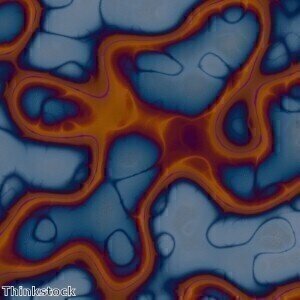News
New discoveries on protein misfolding
Sep 18 2012
A study has now identified 21 proteins that specifically bind to a protein called ataxin-1 and influence its folding or misfolding. A special structure called "coiled-coil-domain" was also discovered.
Researchers from the Max Delbruck Center for Molecular Medicine (MDC) Berlin-Buch, Germany, along with their peers at the Université Paris Diderot, Paris, France, conducted the study.
Neurodegenerative diseases such as Huntington’s disease or spinocerebellar ataxias (SCAs), which are characterised by a advancing loss of neurons in the brain, can be caused by misfolded proteins.
Misfolded proteins can amass into insoluble masses that join with other proteins and are poisonous to cells.
The protein that has now been studied, Ataxin-1, is extremely prone to misfolding because of hereditary gene defects that cause neurodegenerative diseases.
This is due to an overload of the amino acid glutamine in the chains that make up atain-1. It's estimated that for a cell to be toxic, 40 repeats of glutamine misfolding are required.
Of the 21 identified proteins that mostly interact with ataxin-1 and manipulate its folding or misfolding, 12 augment the misfolding of the protein through increasing its toxicity for the nerve cells.
This means that they encourage the development of harmful protein aggregate structures. On the other hand, nine proteins prevent the misfolding, through reducing its toxicity.
Coiled coil domains were discovered by the researchers as a common feature in the structure of those proteins. These special structures increase aggregation and toxicity in the proteins and are named after the fact that they look like a helix or double twisted spiral.
The structures encourage aggregation by the proteins that interact with ataxin-1 enhancing the toxic effect of mutated ataxin-1.
"A careful analysis of the molecular details could help to discover drugs that suppress toxic processes," said the researchers.
Posted by Fiona Griffiths
Digital Edition
Lab Asia Dec 2025
December 2025
Chromatography Articles- Cutting-edge sample preparation tools help laboratories to stay ahead of the curveMass Spectrometry & Spectroscopy Articles- Unlocking the complexity of metabolomics: Pushi...
View all digital editions
Events
Jan 21 2026 Tokyo, Japan
Jan 28 2026 Tokyo, Japan
Jan 29 2026 New Delhi, India
Feb 07 2026 Boston, MA, USA
Asia Pharma Expo/Asia Lab Expo
Feb 12 2026 Dhaka, Bangladesh



















